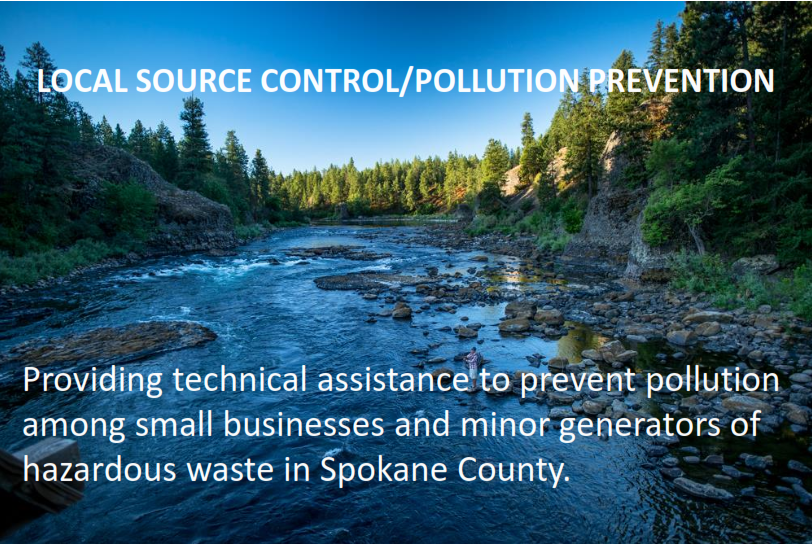Local Source Control/Pollution Prevention Technical Assistance
509.324.1560 ext 3 | pollutionprevention@srhd.org
Protecting Spokane’s Water: How Small Businesses Can Help Care for the Spokane River
Voluntary. Free. Friendly. Full of Resources & Assistance.
Program Overview
The Local Source Control program at Spokane Regional Health District visits small businesses that generate hazardous waste to evaluate their handling practices. Program specialists assess these businesses for regulatory compliance, while offering new and best management practices for improvements.
The work of this program is important because these hazardous substances, including PCBs, PBDEs (flame retardants), dioxins, furans, and metals, eventually end up in wastewater, groundwater and stormwater, which then flow into the Spokane River. These substances are currently found at harmful levels in fish tissue, water, and sediment in the river.
To protect vulnerable bodies of water like the Spokane River the Washington State Legislature, in 2007, funded the state’s Urban Waters Initiative. Subsequently, in 2008, the Washington State Department of Ecology issued grants to 14 cities and counties, including Spokane, to implement Local Source Control programs to provide pollution prevention technical assistance to small businesses. The goal of the programs, like the one at Spokane Regional Health District, is to identify and control contaminants entering wastewater, groundwater and stormwater at the source. Technical assistance visits are offered without charge to small quantity generators.
The following practices are evaluated by specialists during business visits
- Generation and pre-treatment of wastewater
- Management of wash water
- Waste disposal and recycling
- Spill prevention
- Outdoor maintenance practices
- Outdoor storage practices for products and waste
- Fueling operations

